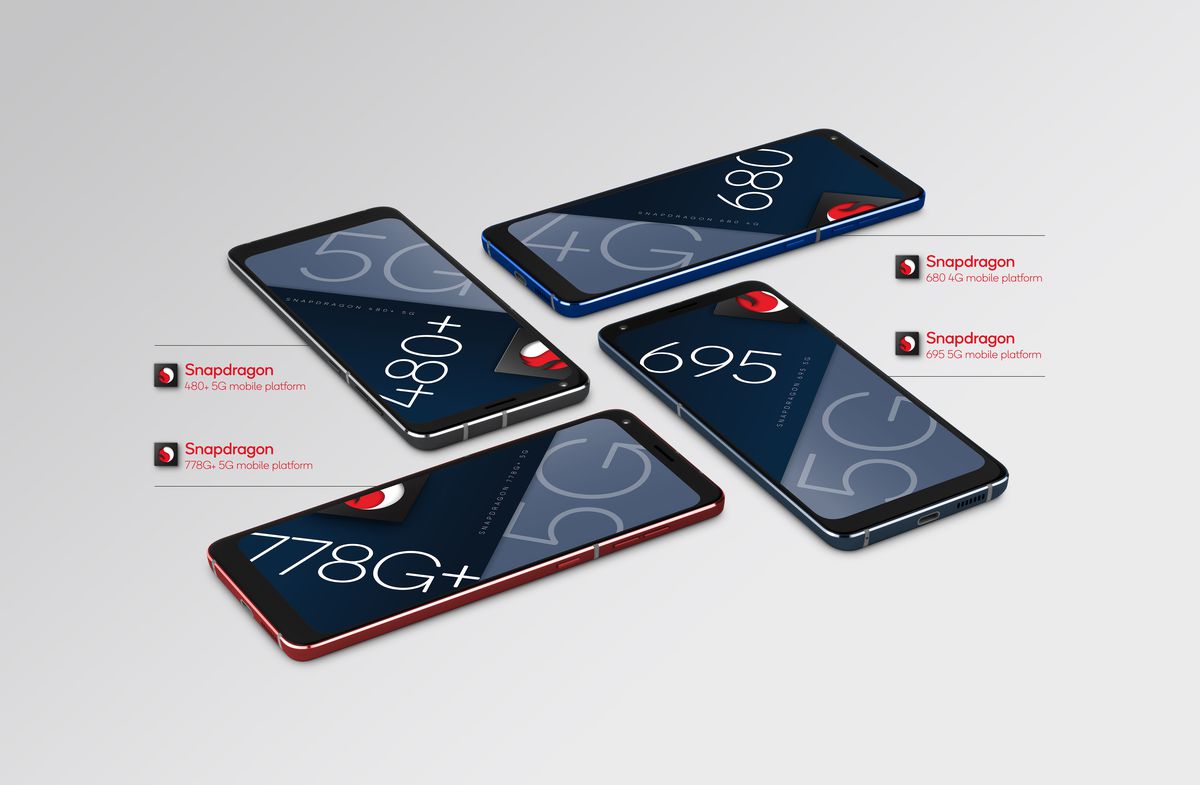Qualcomm is announcing a pile of new Snapdragon chips today across its mid- and entry-level product lineups: the Snapdragon 778 Plus, 695, 680, and 480 Plus, offering more options to device manufacturers when it comes to picking the best processor for a phone — and, in theory, more choice for customers when they’re looking to buy one.
The most notable new chip is the Snapdragon 695, which replaces the Snapdragon 690 in Qualcomm’s lineup. Unlike the old model, the Snapdragon 695 will support both mmWave and sub-6GHz versions of 5G, which should help improve data speeds even on cheaper phones (which have thus far tended to skip out on offering mmWave support). There’s also a considerable boost in performance: Qualcomm promises a 15-percent improvement in CPU performance and up to 30 percent faster graphics rendering compared to the 690.

There’s also the curious addition of the Snapdragon 680 — a new LTE-only SoC that’s built on the same, more modern 6nm process as the 695. It’s not quite up to par with the new 5G chip that Qualcomm announced, but rather is intended to help fill the gap in Qualcomm’s lineup for companies that still are looking for 4G-only devices (which can help cut costs in regions that don’t have 5G deployments yet).
The other two chips are refreshed versions of existing modes. There’s the Snapdragon 778G Plus, an enhanced version of the standard 778G model that the company announced earlier this year, and the Snapdragon 480 Plus, which upgrades the existing Snapdragon 480. Both models promise boosted performance compared to their non-plus counterparts, although the gains are small. The 778G Plus, for example, sees its CPU go from 2.4GHz to 2.5GHz, while 480 Plus boosts clock speed from 2.0GHz to 2.2GHz.
The four new chip platforms are all expected to launch later in Q4 2021, with partners HMD, Honor, Motorola, Oppo, Vivo, and Xiaomi all expressing interest in using at least some of the new Snapdragon chips.
https://www.theverge.com/2021/10/26/22740748/qualcomm-snapdragon-695-778-plus-480-680-5g-4g-smartphone-chips

